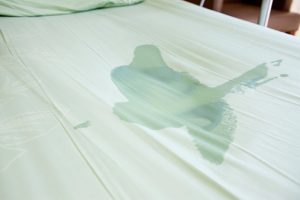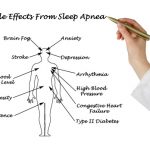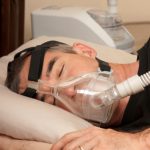 Bedwetting has been found to be a helpful symptom when trying to diagnose post-menopausal women with obstructive sleep apnea, according to new findings. The lead author of the study suggests that nearly two percent of post-menopausal women suffer from sleep apnea – a condition where a person can stop breathing while they are asleep. Post-menopausal women are often misdiagnosed because women underestimate the symptoms associated with obstructive sleep apnea.
Bedwetting has been found to be a helpful symptom when trying to diagnose post-menopausal women with obstructive sleep apnea, according to new findings. The lead author of the study suggests that nearly two percent of post-menopausal women suffer from sleep apnea – a condition where a person can stop breathing while they are asleep. Post-menopausal women are often misdiagnosed because women underestimate the symptoms associated with obstructive sleep apnea.
To reach their findings researchers analyzed data from over 161,000 post-menopausal women. Researchers noted prevalence of common obstructive sleep apnea risk factors along with the symptom of bedwetting.
Advertisement
Researchers uncovered a link; the more common obstructive sleep apnea risk factors a post-menopausal woman had, the more likely she was to experience bedwetting. For example, if a post-menopausal woman had two risk factors for obstructive sleep apnea she was twice as likely to have bedwetting. If she had four risk factors she was four times as likely to experience bedwetting.
Obstructive sleep apnea symptoms in women
 Obstructive sleep apnea can impair your daily life as well as contribute to many other health risks. Symptoms of obstructive sleep apnea include:
Obstructive sleep apnea can impair your daily life as well as contribute to many other health risks. Symptoms of obstructive sleep apnea include:
- Chronic fatigue during the daytime
- Loud snoring
- Breathing cessations during sleep
- Abrupt awakenings followed by shortness of breath
- Awakening with dry mouth or sore throat
- Awakening with chest pain
- Headache in the morning
- Difficulties while concentrating
- Mood changes
- Insomnia
- High blood pressure
Symptoms can become quite severe, so if you experience any of the following you should seek out medical attention:
- Snoring which disrupts the sleep of others
- Shortness of breath which awakens you from sleep
- Excessive daytime tiredness which prevents you from normal functions or increases your risk of injury
Obstructive sleep apnea causes and risks
Obstructive sleep apnea is caused when a blockage occurs in the throat which blocks the airways. When we sleep the muscles in our throat normally relax, but when a person has a narrow throat this can become easily blocked. Another result of this narrowing is snoring, which is a key symptom of sleep apnea. Aside from a blockage other risk factors and causes of obstructive sleep apnea include:
- Shortened lower jaw compared to the upper jaw
- Large neck (in men 17 inches or more, in women 16 inches or more)
- Large tongue
- Obesity
- Large tonsils and adenoids
Home remedies for obstructive sleep apnea
 If obstructive sleep apnea is severe a doctor may recommend a continuous positive airway pressure (CPAP) machine which provides continuous air to prevent blockages as well as prevent stoppage of breath. But before you require assistance from a machine to help you sleep, there are effective home remedies which can help obstructive sleep apnea. Home remedies include:
If obstructive sleep apnea is severe a doctor may recommend a continuous positive airway pressure (CPAP) machine which provides continuous air to prevent blockages as well as prevent stoppage of breath. But before you require assistance from a machine to help you sleep, there are effective home remedies which can help obstructive sleep apnea. Home remedies include:
- Losing weight
- Exercise
- Minimize alcohol consumption
- Avoid sleeping medications or tranquilizers
- Avoid sleeping on your back
- Keep nasal passages open while asleep
Obstructive sleep apnea, if untreated, can result in many unwanted health consequences; therefore, it is important to take the necessary steps to prevent and even treat the condition. Women, especially, should pay close attention to symptoms, including bedwetting, for better insight into their risk of obstructive sleep apnea.
Related Reading:
Loud snoring and daytime fatigue? Could be sleep apnea
Snoring can be seen as a few different things. For some it signals being in a deep sleep; for others – mainly the individual sharing the bed with you – it can be a complete nuisance and prevent them from sleeping. Continue reading…
Why not getting enough sleep is worse than you think
Advertisement
Sleep serves both physical and psychological functions. We all need sleep. Sadly, in our culture, work and social pressures don’t always allow us to get enough sleep. The National Sleep Foundation reports that most Americans suffer from sleep deprivation. Continue reading…
Study detects obstructive sleep apnea (OSA) in congestive heart failure (CHF) patients
A recent study shows that it is possible to predict the onset of obstructive sleep apnea (OSA) in patients suffering with congestive heart failure….Continue reading
Sources:
http://www.sciencedaily.com/releases/2015/09
https://www.nlm.nih.gov/medlineplus/ency/article
ttp://www.mayoclinic.org/diseases-conditions/obstructive-sleep-apnea/basics/lifestyle-home-remedies
